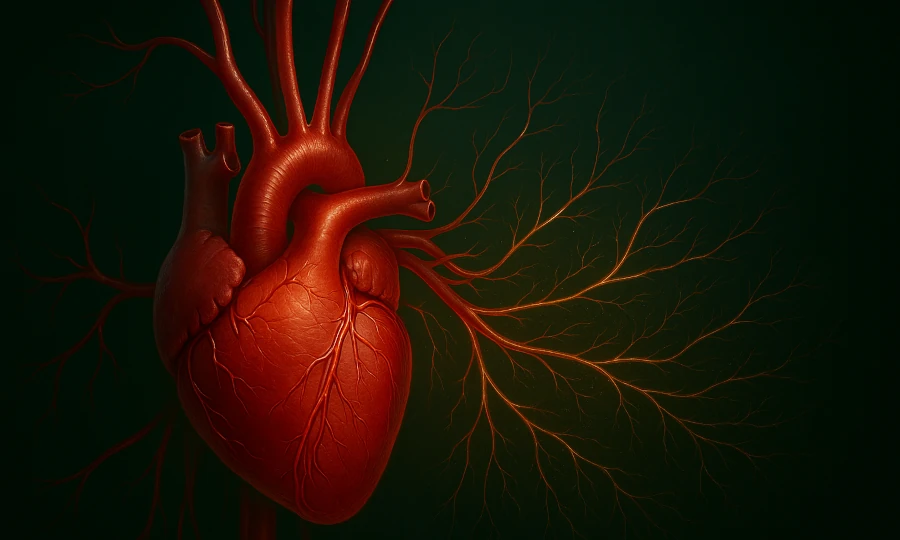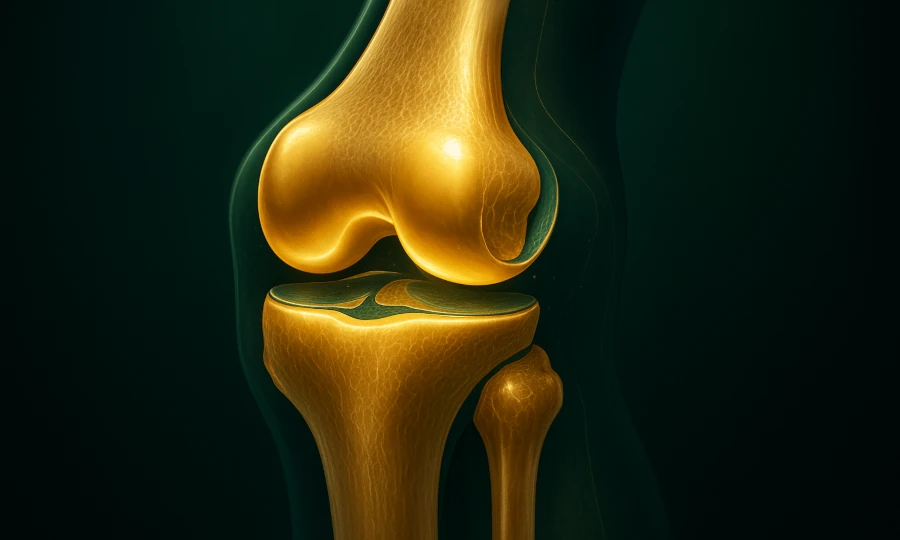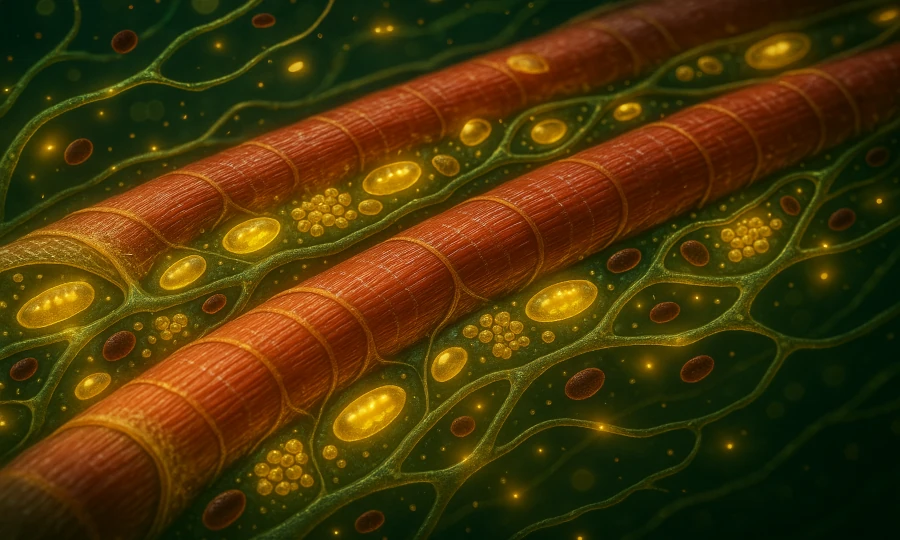
The cardiovascular system represents a vital network that ensures the supply of oxygen and nutrients to all parts of the body. The heart as a tireless pump and the vessels as a sophisticated network of distribution pathways together form the foundation of our health and vitality. Today, however, this system faces many challenges – from sedentary lifestyle and improper diet to chronic stress and environmental toxins.
Comprehensive Support for a Healthy Heart and Optimal Circulation
Roanga Infinity® combines bioactive substances that contribute to maintaining healthy circulation and cardiovascular balance. The synergy of marine lipids, plant antioxidants, and traditional herbal extracts offers natural support for vitality and a healthy lifestyle.
Modern scientific research suggests that optimal cardiovascular health depends on the interplay of several key factors:
- Protection of vascular walls from oxidative stress and inflammation
- Optimal balance of blood lipids and healthy liver function
- Healthy blood viscosity and optimal microcirculation
- Natural resilience to stress and the body's ability to adapt
Support for Healthy Circulation
Healthy blood circulation is essential for optimal supply of oxygen and nutrients to all tissues. The endothelium – the delicate lining of blood vessels – plays a key role in regulating blood flow and the health of the vascular system.
OPC from grape seeds and lycopene help protect vascular walls from oxidative stress and support normal function of the circulatory system. A scientific study published in Circulation Research (2018) documents that plant polyphenols can support healthy endothelial function and contribute to optimal vasodilation – the ability of vessels to expand as needed (Grassi et al., 2018).
These natural antioxidants can help:
- Protect the endothelium from oxidative damage
- Support natural production of nitric oxide, important for healthy vascular function
- Contribute to the elasticity of vascular walls and their adaptability
- Support optimal microcirculation in tissues
Marine Omega-3 Fatty Acids
Omega-3 fatty acids, especially EPA (eicosapentaenoic acid) and DHA (docosahexaenoic acid), are known for their benefits to cardiovascular health. These essential fatty acids must be obtained from the diet because the body cannot create them on its own.
Green New Zealand mussel (Perna canaliculus) is a natural source of Omega-3s that contribute to maintaining a healthy cardiovascular system. A systematic review published in the journal Nutrients (2020) documents that marine Omega-3 fatty acids can contribute to healthy heart function and support optimal blood triglyceride levels (Bernasconi et al., 2020).
These natural marine lipids can help:
- Support healthy heart rhythm and its electrical stability
- Contribute to optimal blood viscosity and its healthy fluidity
- Support natural regulation of inflammatory processes in the vascular system
- Contribute to maintaining healthy triglyceride levels in the blood
"Cardiovascular health is the foundation of overall vitality and energy balance. Natural bioactive substances can support this vital system and contribute to its optimal function at any age."
Balance of Blood Pressure and Lipids
Healthy balance of blood pressure and blood lipids are key aspects of cardiovascular health. Modern lifestyle often leads to disruption of this balance, which can negatively affect heart and vascular health in the long term.
Garlic and milk thistle from Roanga Purea® are traditionally used to support normal blood lipid levels and healthy liver function, which benefits overall circulatory comfort. Scientific studies suggest that bioactive compounds from garlic can contribute to maintaining healthy cholesterol levels and support optimal blood pressure (Ried et al., 2016, Journal of Nutrition).
These traditional herbs can help:
- Support healthy levels of cholesterol and triglycerides in the blood health.
Ginseng and Reishi contribute to better adaptation to both physical and mental stress and support overall vitality, which is important for healthy functioning of the heart and blood vessels. A study published in the Journal of Ginseng Research (2017) suggests that the adaptogenic properties of ginseng can support a healthy response to stress and contribute to the energy balance of the body (Kim et al., 2017).
These traditional adaptogens can help:
- Support the body's natural resilience to stress
- Contribute to optimal energy balance and vitality
- Support healthy function of mitochondria – the cellular power plants
- Contribute to the overall resilience of the cardiovascular system
Holistic Approach to Cardiovascular Health
The health of the heart and vascular system is the result of a complex interplay of many bodily systems and processes. Modern scientific findings confirm that optimal support requires a holistic approach that focuses on key aspects of cardiovascular health – from protecting vascular walls from oxidative stress through supporting healthy lipid balance to increasing overall vitality and resilience of the body.
Roanga Infinity® offers comprehensive natural support that combines traditional wisdom with modern scientific knowledge. Carefully selected natural substances work in synergy and can contribute to the natural protection and vitality of the cardiovascular system, which is the foundation of overall energy and life force.
Note: Roanga Planet products are dietary supplements that can contribute to supporting natural processes in the body. They are not intended to diagnose, treat, cure, or prevent any disease.
Frequently Asked Questions about Heart and Circulatory Health
How does the cardiovascular system change with age?
With advancing age, natural changes occur in the cardiovascular system. After the age of 30, the elasticity of blood vessels gradually decreases, which can lead to increased systolic blood pressure. The walls of arteries can thicken, and their lumen can narrow. Cardiac muscle may lose some of its contractile strength, and maximum cardiac output may decrease. Valves can lose elasticity and may accumulate calcium deposits. Baroreceptors that regulate blood pressure may become less sensitive, which can lead to postural hypotension (a drop in pressure when changing position). The good news is that regular physical activity, a balanced diet rich in antioxidants, maintaining optimal body weight, and appropriate dietary supplements can optimally support these natural processes and contribute to maintaining healthy cardiovascular system function even at an older age.
What is the importance of antioxidants for vascular health?
Antioxidants play a key role in protecting vascular walls from oxidative stress, which is one of the main factors contributing to age-related changes and cardiovascular problems. The endothelium – the delicate lining of blood vessels – is particularly susceptible to oxidative damage. Oxidative stress can disrupt the production of nitric oxide (NO), an important vasodilator, which can lead to endothelial dysfunction and loss of vascular elasticity. Oxidized LDL particles can initiate inflammatory processes in vascular walls and contribute to the formation of atherosclerotic plaques. Natural antioxidants such as polyphenols from grape seeds (OPC), lycopene from tomatoes, vitamins C and E, or flavonoids can neutralize free radicals and protect the endothelium from oxidative damage. Studies suggest that these substances can support healthy endothelial function, contribute to optimal vasodilation, and support cardiovascular health. Antioxidants can also contribute to protecting LDL particles from oxidation and support a healthy balance between pro-inflammatory and anti-inflammatory processes in the vascular system.
What effect do Omega-3 fatty acids have on cardiovascular health?
Omega-3 fatty acids, especially EPA (eicosapentaenoic acid) and DHA (docosahexaenoic acid), have several important functions in the context of cardiovascular health. These essential fatty acids can contribute to normal heart function, support healthy blood triglyceride levels, and contribute to optimal blood viscosity. Omega-3 fatty acids are incorporated into cell membranes, including those of cardiac cells, where they can affect their fluidity and the function of ion channels, which can contribute to the electrical stability of the heart. They can also modulate inflammatory processes by producing anti-inflammatory eicosanoids and specialized pro-resolving mediators (SPMs), which help resolve inflammation and support tissue homeostasis. Omega-3 fatty acids can contribute to normal platelet aggregation and support healthy blood fluidity. Studies suggest that regular intake of Omega-3 fatty acids can support healthy blood pressure within normal range and contribute to overall cardiovascular health. Green New Zealand mussel (Perna canaliculus) contains a unique profile of Omega-3 fatty acids, including EPA, DHA, and ETA (eicosatetraenoic acid), which can synergistically support cardiovascular health.
How is liver health related to the cardiovascular system?
Liver health and the cardiovascular system are closely interconnected for several reasons. The liver plays a key role in lipid metabolism – it produces cholesterol, triglycerides, lipoproteins, and regulates their levels in the blood. Liver dysfunction can lead to disruption of this metabolism and contribute to dyslipidemia, which is a risk factor for cardiovascular problems. The liver also metabolizes many substances, including homocysteine, whose elevated level is associated with cardiovascular risks. Chronic liver disease can lead to systemic inflammation, which can negatively affect vascular health. The liver produces coagulation factors and regulates the balance between coagulation and fibrinolysis, which is important for optimal blood viscosity. Non-alcoholic fatty liver disease (NAFLD) is increasingly recognized as an independent risk factor for cardiovascular disease. Natural substances that support healthy liver function, such as milk thistle (containing silymarin), can indirectly contribute to supporting cardiovascular health. A comprehensive approach to cardiovascular health should include support for healthy liver function as an important metabolic organ.
How does stress affect the cardiovascular system?
Stress has a significant impact on the cardiovascular system through several mechanisms. Acute stress activates the sympathetic nervous system, leading to the release of adrenaline and noradrenaline, which increase heart rate, cardiac output, and blood pressure. While this response is adaptive in the short term, chronic stress can lead to long-term activation of the sympathetic nervous system, which can contribute to hypertension and strain the heart. Stress also activates the hypothalamic-pituitary-adrenal axis, leading to the release of cortisol, which can affect lipid metabolism, insulin sensitivity, and inflammatory processes. Chronic stress can promote low-grade systemic inflammation, which is associated with endothelial dysfunction and atherosclerosis. Stress can also lead to unhealthy coping mechanisms such as smoking, excessive alcohol consumption, or unhealthy eating habits, which further increase cardiovascular risk. Adaptogenic herbs, such as ginseng and reishi, can support the body's natural resilience to stress and contribute to protecting the cardiovascular system from its negative effects. Stress management techniques such as meditation, yoga, or breathing exercises can be an important part of a comprehensive approach to supporting cardiovascular health.
Sources and References
- Zhang Haili MM; Liu Shuang MM; Li Lan BD; Liu Shisong BD; Mi Jia MD, PhD, et al. (2016). The impact of grape seed extract treatment on blood pressure changes. (journals.lww.com/md-journal/fulltext/2016/08160/the_impact_of_grape_seed_extract_treatment_on.6.aspx)
- Sylwia Przybylska and Grzegorz Tokarczyk (2022). Lycopene in the Prevention of Cardiovascular Diseases. (www.mdpi.com/1422-0067/23/4/1957)
- Igori Balta, Lavinia Stef, Ioan Pet, Tiberiu Iancu, et al. (2021). Essential Fatty Acids as Biomedicines in Cardiac Health. (pmc.ncbi.nlm.nih.gov/articles/PMC8533423/)
- Ried, K., et al. (2016). The effect of aged garlic extract on blood pressure and other cardiovascular risk factors in uncontrolled hypertensives: the AGE at Heart trial. Integrated Blood Pressure Control, 9, 9-21. (doi.org/10.2147/IBPC.S93335)
- Kim, J.H., et al. (2017). Beneficial effects of Korean red ginseng on vascular endothelial function in patients with coronary artery disease. Journal of Ginseng Research, 41(3), 292-302. (doi.org/10.1016/j.jgr.2016.05.005)


